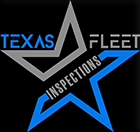Pump Company fined $$$$$$$$$ are you next?
| Todd | 10-02-2006 | comment profile send pm notify | ||
|
||||
| Todd | 10-02-2006 | reply profile send pm notify | ||
|
State notification efforts a failure, says industry
Monday, October 2, 2006
Construction-related businesses that utilize portable engines -- power generators, pumps, compressors, diesel pile-driving hammers, welders, cranes and woodchippers -- were required to register their engines by Dec. 31, 2005, or risk fines of $10,000 per engine per day, according to the California Air Resources Board (CARB).
"CARB did a terrible job getting the word out that everyone had to register all portable engines by last Dec. 31," said Mike Shaw, Engineering & General Contractors (EGCA) board member and president of Perry & Shaw in El Cajon. "There are almost 240,000 contractors in California; CARB notified only about 25,000 of them. They sent out these little innocuous 'advertisement' flyers that probably got thrown out with the 80 other flyers you get every day and there was no apparent effort at all to reach others who are not contractors. They could have reached out to equipment dealers, to industry associations, done an effective community outreach effort and worked to partner with business. They didn't do that."
"ARB outreach efforts included contacting over 25,000 businesses having contractor licenses with the State Contract Licensing Board, 3,000 people that previously had expressed interest in receiving information on the program directly from ARB, 1,600 businesses already in the PERP program, 1,200 businesses provided by the Construction Industry Air Quality Coalition, all engine manufacturers, industry associations, the engine manufacturing association and most all engine dealers," replied Richard Smith, director of the San Diego Air Pollution Control District (APCD). "In addition there were thousands of notices that individual air pollution control districts sent out informing businesses of the PERP requirements."
Southern California Contractors Association's Bill Davis took issue with Smith's statements and CARB's efforts. "According to the US Census Bureau, in 2002 there were 237,788 construction companies operating in California and CARB, at best, sent a notice to one in 10 of those ... maybe, because CARB's own staff admits that the CSLB mailing list is incredibly inaccurate -- the thousands of returned mailings are still stacked up somewhere in Sacramento. And the Amber Parsons of the world are not contractors and would not have been part of that meager notification effort."
As to manufacturers of concrete pumps, Amber Parsons, co-owner of Sacramento-based Performance Concrete Pumping Inc. -- who was recently hit with two notices of violation requiring payment of fines and an agreement to replace two new $10,000 Tier 1 engines with newer Tier 2 engines in three years -- said, "There are fewer than 10 manufacturers in existence, and CARB apparently failed to send a letter to any of them. We've bought new pumps from three different companies in three years. I talked to a guy named Doug, the son-in-law of the owner of Transcrete (a pump manufacturer based in Los Angeles), and he didn't know about [the registration requirements] and didn't even know why being a Tier 1 engine makes a difference."
"CIAQC's position is that registration should be an on-going and regular function of the regulation--not something that requires 'amnesty' like the industry is made up of a bunch of tax cheats or illegal aliens," said SCCA's Davis, a board member of the Construction Industry Air Quality Coalition, (CIAQC). "CIAQC knows what a miserable failure the outreach programs have been. CIAQC also knows that the consequences of the enforcement phase of this program will be the destruction of thousands of small and large contractors in this state. While the San Diego APCD may be very humane in its approach, others, such as the South Coast AQMD and Sacramento regional agency, are not. Talk to MCM Construction about the $34 million lawsuit the state is pursuing over this same regulation. No one is safe."
"San Diego's Engineering & General Contractors Association (EGCA) is working to get the word out to local contractors through its Web site, www.cleanairconstruction.org, and in public meetings and newspaper articles, but without a serious concerted effort by public agencies like the Air Resources Board, the task is very difficult," commented EGCA Executive Director Debbie Day.
"We're concerned this is a foreshadowing of things to come with new off road diesel engine emissions regulations on self-propelled equipment due to be enacted early 2007," reported EGCA Public Works Liaison Dan Fauchier.
"In terms of what you think we'll do in the future? Look at what we've done in the past," said Catherine Witherspoon, CARB's executive officer, in a comment for publication in the August EGCA Magazine. "Construction and mining equipment are the next important steps in the process of cleaning up California's air."
For more information see www.egca.org. |
||||
| Sac | 10-30-2006 | reply profile send pm notify | ||
|
i dont feel sorry for them :D shady buisness anyways |
||||




















.jpg)
.gif)

.jpg)









.jpg)








